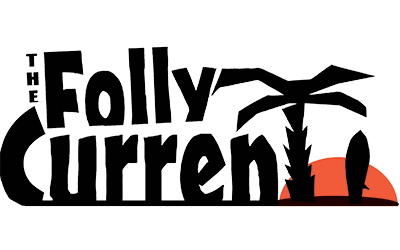College of Charleston Releases Folly Economic Impact Study
By Warren Cobb | Managing Editor
Last year, the City of Folly Beach asked the College of Charleston Office of Tourism Analysis to assess the city’s impact on tax revenue and jobs. The purpose of the study was to create a tool for lobbying local, state and federal government agencies in the hopes said agencies would continue, if not increase, the amount of money earmarked for beach renourishment on Folly Beach, a process that is supposed to occur every seven years, but that timeframe has shrunk each decade.
During the last renourishment project, the City incurred a higher-than-expected share of the cost of renourishment. Due to the increasing cost of such construction, the cost to all involved (federal, state and local) rises substantially each year. The total cost of the 2014 renourishment project was $30.7 million, with 15 percent ($4.6 million) coming from the City of Folly Beach. The next renourishment project is estimated to begin in 2020.
The Economic Impact Study, prepared by noted CofC professors
Raymond Rhodes and Bing Pan, came up with some pretty big numbers. Here are a few examples:
• Folly generates $117 million in sales annually.
• Folly creates 1,200 jobs and $40 million
in salaries annually.
• Folly visitors generate $22 million in taxes; $17 million in state and local, and $5 million in federal.
• The beach protects $500 million in property, beach access, and infrastructure, which generates $11.6 million in property taxes for state and local governments.
• For every $1 invested in beach restoration, the beach generates $37 in return.
• The total annual economic value for recreational beach users at Folly Beach was estimated to be nearly $4.5 million.
• The number of annual Charleston area visitor trips that included visiting Folly Beach was estimated to be nearly one million, which represents about 21 percent of all Charleston area visitor trips during 2014.
Rhodes and Pan wrapped their conclusions in the issue of periodic renourishment of Folly Beach, including the negative impacts associated with a delay in renourishment by the year 2020.
“Based upon the projection assumptions, the findings clearly illustrate that if there are future renourishment delays relative to 2020 that persisted over a four-year period, this could lead to an accumulative net economic impact loss, as a conservative estimate, of nearly $26 million in total sales (total output) at the state level, along with the related accumulative net loss of $6.5 million in local and state taxes,” the researchers report.
They also project that Charleston area households would collectively place an annual value of $4.2 million on protecting the marine turtle species that depend upon Folly’s beach as a nesting habitat.
In their final conclusion, Rhodes and Pan say their study’s findings “clearly indicate that substantial amounts of the economic impacts and related tax revenues that are generated by Charleston area nonresident visitors are attributable to their visiting and staying in Folly Beach. This is generally coupled to periodic renourishment of Folly Beach,” they say.
The study finds the economic impacts of Folly Beach and its timely renourishment extend far beyond the City limits, and provide major positive economic impacts to the greater Charleston area and residents of the entire State of South Carolina.
The report ends on a foreboding note. “A forecast of possible economic effects if the next scheduled periodic renourishment project was delayed beyond 2020 has the potential of translating into significant net job and income losses in the Charleston area and at the state level. In addition, other economic and non-economic benefits derived from beach renourishment that flow to Charleston area residents as well as non-resident visitors would also be in jeopardy over time if renourishment is delayed.”
To read this report in its entirety, go to cityoffollybeach.com/about-folly/follys-economic-impact, and click on the link at the bottom of the page.

